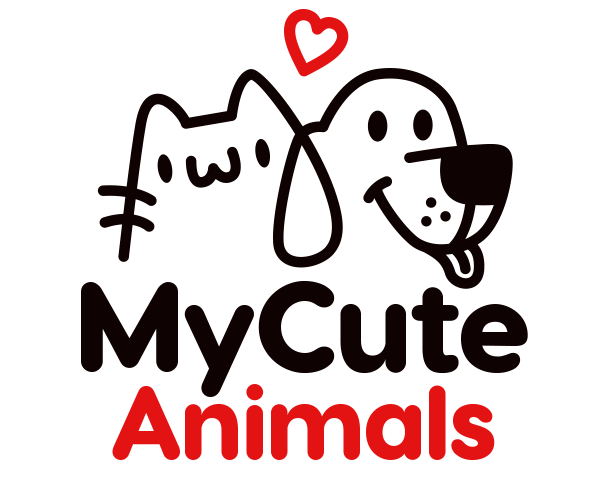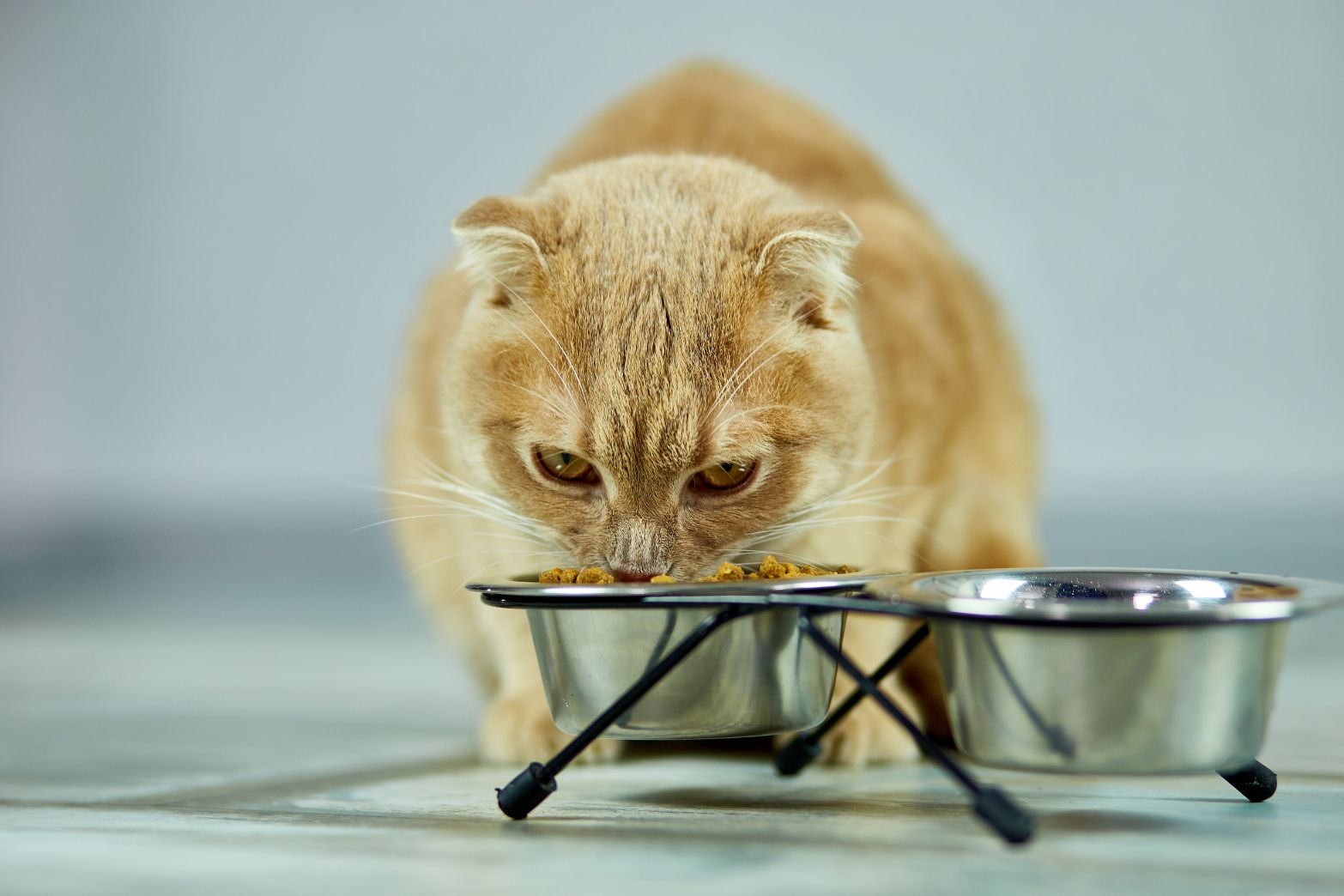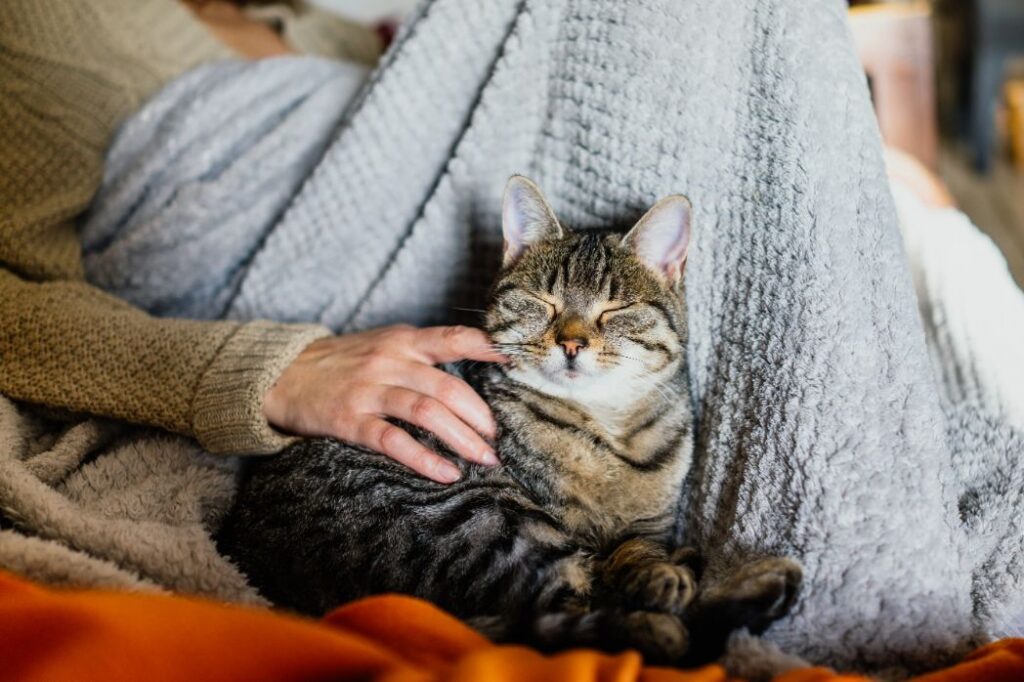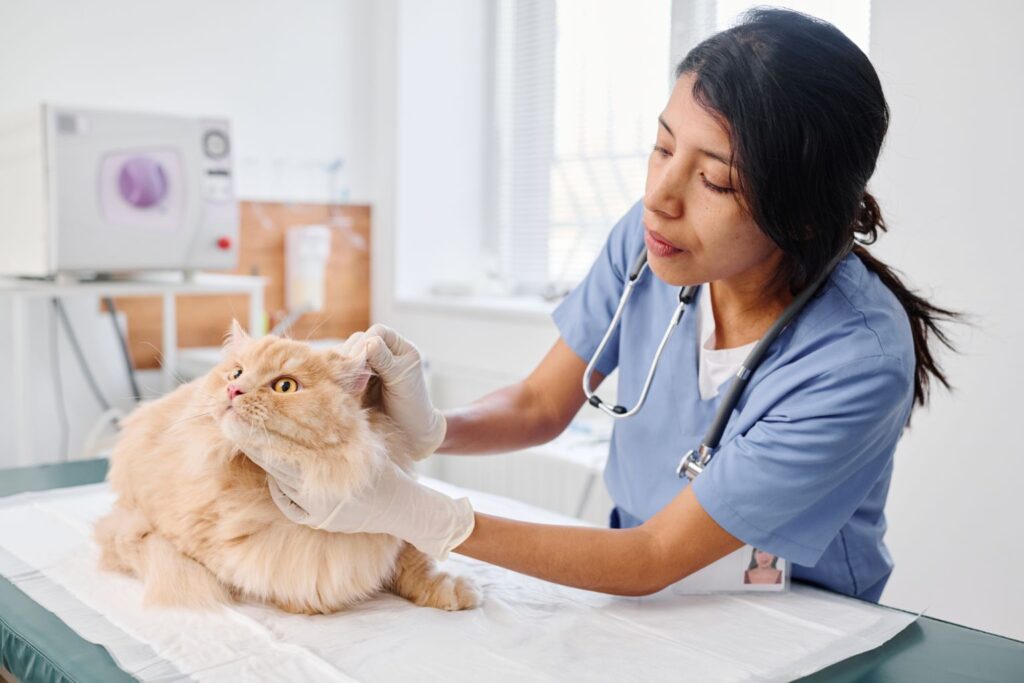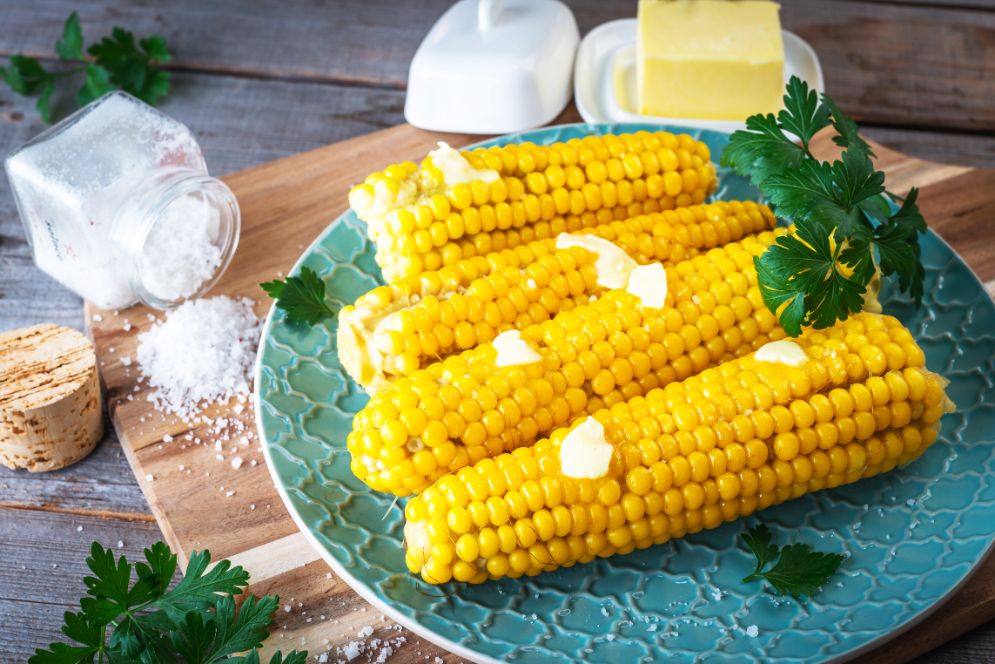Table of Contents
You’ve just had corn for breakfast but forgot to clear the dining table. A few minutes later, you spot your cat perched on the table, happily munching on the corn leftovers.
As a concerned pet parent, you can’t help but wonder if your cat will drop dead the next minute. But can cats eat corn? Let’s find out.
Can Cats Eat Corn?
When discussing what human foods cats can and cannot eat, emphasis is usually placed on two aspects, namely;
• The safety of these people foods for cats
• The potential health and dietary benefits of the products
Corn is safe for cats to the extent that it doesn’t present immediate health concerns. Your feline friend is unlikely to drop dead from eating a few corn grains. Neither does the cereal contain any chemicals that may induce toxicity in cats.
Corn also contains certain nutrients that your cat may find useful. These nutrients come in the form of vitamins, minerals, and antioxidants.
So, in terms of the safety and health cum nutritional benefits, it’s evident that cats can eat corn.
However, it’s imperative to take certain precautions when sharing corn with your feline housemate. For instance, eating too much corn might present serious dangers for your cat. The condition of the corn (such as whether it’s raw or cooked) may also affect its overall safety for cats.
When Is Corn Good For Cats?
As already indicated, corn contains certain vitamins and minerals that cats may benefit from. Below are some of those nutrients, along with their potential benefits for cats;
1. Dietary Fiber
Corn is rich in dietary fiber. The grain is high in both soluble and insoluble fiber.
Soluble fiber readily dissolves in your cat’s gut, where it’s fermented by the animal’s gut microbiome. This phenomenon has been shown to reduce the risks of leaky gut and other metabolic disorders, such as inflammatory bowel disease (IBD).
On its part, insoluble fiber moves through your cat’s stomach undigested. The substance acts as roughage, bulking up the animal’s stool. Bulky stools translates to regular bowel activity. That explains why cats who consume fiber-rich regularly are less susceptible to digestive issues like constipation and indigestion.
But fiber doesn’t only play a key role in supporting your cat’s digestion. The nutrient can also promote weight loss due to its filling effects. Besides, fiber-rich diets can improve cardiovascular functions.
2. Plant Protein
Cats require protein in their diets more than any other nutrient (besides water, of course).
Your kitto gets much of his protein from animal products. But that doesn’t stop you from supplementing his regular diet with protein-rich plant-based foods like corn.
Protein plays several fundamental roles in a cat’s body. The nutrient acts as the building blocks for the development of tissues, muscles, bones, and even fur.
Protein is also involved in various metabolic processes. Besides, it combines with other nutrients like fiber and water to control the food portions your cat can down in a single meal.
3. Antioxidants
Like most grains, corn is high in antioxidants. Antioxidants are compounds that slow down the risks of disease by countering the adverse effects of free radicals in body cells.
Antioxidants are particularly effective against inflammatory diseases. The compounds may also boost the health of your cat’s coat, eyes, bones, and brain.
When Is Corn Bad For Cats?
a) Corn May Cause Asphyxiation
Choking is probably the biggest risk of serving corn to cats.
Note that cats do not chew their food as carefully as humans do. Instead, they prefer to swallow it whole.
Due to their small throat diameters, even a single corn grain can asphyxiate a cat. And that’s not all. Swallowing too many undigested corns might cause intestinal blockage.
Intestinal blockage is a life-threatening condition that may often require emergency surgery. If untreated, death can occur in as little as 48 hours.
The risks of choking and obstruction are higher if your cat happens to have eaten corn directly from the cob. It’s even worse for dried corn, such as roasted corn and popcorns.
b) Corn May Mess up Your Cat’s Blood Sugar Levels
Corn is relatively high in carbohydrates and sugar. Unfortunately, high-carb diets are potentially harmful to cats.
Foods high in carbohydrates, such as corn, can easily mess up your cat’s blood sugar levels. A rapid surge in blood sugar can lead to hypertension and unhealthy weight gain. Without timely interventions, the condition might trigger secondary health complications like heart disease, stroke, and diabetes.
c) Corn May Cause Allergic Reactions
Cats are obligate carnivores, which means that they prefer a diet made up almost exclusively of animal products. Evolution hasn’t prepared a cat’s stomach to handle greens. So, the mere fact that corn is a plant-based food means it can potentially cause allergic reactions.
Corn also contains certain compounds that may trigger hypersensitive reactions in cats who’re already allergic to the grain. Gluten is one such compound.
Common symptoms of corn allergy in cats include;
• Vomiting and diarrhea
• Nausea and appetite loss
• Fatigue and lethargy
• Rapid weight loss
• Hypersalivation
• Skin irritation, marked by excessive scratching
• Respiratory symptoms like coughing and sneezing
d) Corn Contains Antinutrients
Corn may provide several nutrients for cats. But the grain also contains decent amounts of phytic acid, a substance that acts as an antinutrient.
Antinutrients are substances that inhibit the absorption of certain minerals. Studies have linked phytic acid to the reduced absorption of zinc and iron.
e) Corn May Be Nutritionally Useless For Cats, After All
Cats are known to snack on plant-based foods from time to time. But being an obligate carnivore, your feline friend is more comfortable eating animal-derived products.
It’s undeniably true that corn packs many nutrients. However, there’s no guarantee that your cat will enjoy those nutrients the same way you would.
Perhaps this also begs the question, why is corn a common ingredient in cat food?
Well, corn is mainly added to commercial cat food as a filler.
What’s The Best Way to Share Corn With Cats?
i. Soak it
Soaking corn helps to decrease the adverse effects of antinutrients like phytic acid. Alternatively, you might consider sprouting or fermenting the grain.
ii. Choose the best variety
Corn is available in numerous forms. However, not all varieties are safe for your feline friend.
Examples of corn types that you can share with your cat include popcorn, canned and/or frozen corn, and boiled or grilled corn.
On the other hand, avoid corn chips, corn-based breads (such as tortillas, quesadillas, and tacos), corndogs, fried corn kernels, candy corn, and polenta. It’s not the corn in these products that makes them inherently toxic to cats. Instead, it’s the other common ingredients, such as fat, salt, and spices.
iii. Feed it in moderation
This is the most important precaution when sharing corn with cats. Never let your cat have more than a few corn grains. Nearly all the adverse effects of corn in cats occur due to overconsumption of the grain.
Wrap Up
Corn is not immediately toxic to cats. The grain might even offer certain benefits if fed in moderation. However, the fact that cats are obligate carnivores means they can do without corn.
Therefore, you’re better off giving your kitto other useful food alternatives, such as beef, seafood, and poultry. You can also consider better plant-based alternatives to corn, including cauliflower, broccoli, cabbage, kale, and carrots. And if you absolutely cannot resist the urge to share corn with your feline friend, be sure to prepare the grain the right way before serving it to the cat.
